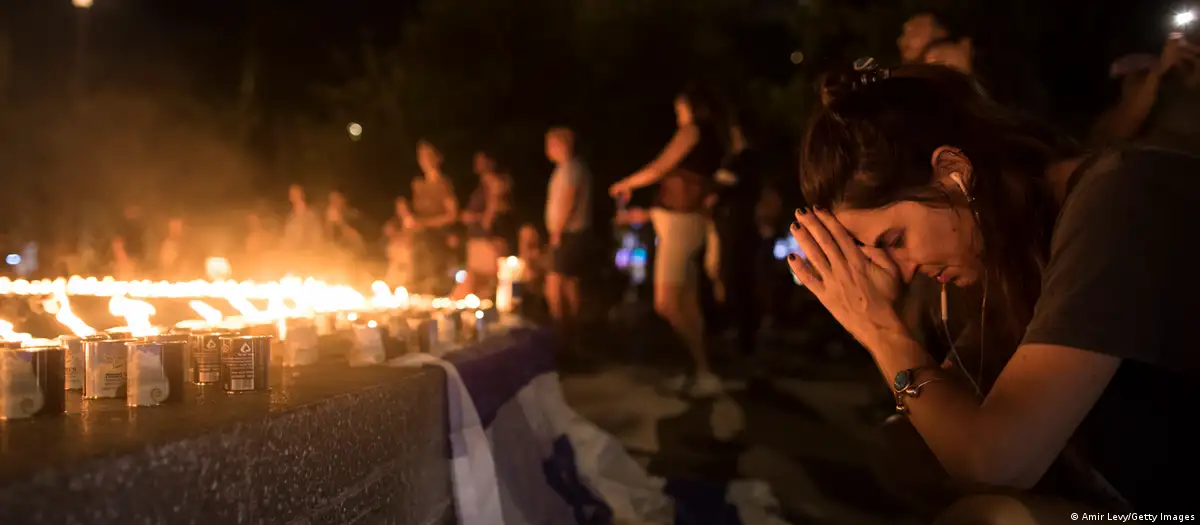Where's the nuance?

The German debate on the war in the Middle East has become detached from the international view of the conflict. German journalists, cultural workers, institutions and politicians who operate in an international context are under increasing pressure – on a daily basis – to conform.
While the rest of the world seeks to promote conciliatory and considered positions, in Germany any statements aimed at moderation are either discredited, ridiculed or ignored. We almost need to be grateful that Annalena Baerbock had the courage to talk about "humanitarian windows" at the last UN Security Council meeting; that she abstained from voting on the UN resolution calling for a ceasefire.
After all, had she spoken about humanitarian "portholes" or even "peepholes", nobody in Germany would have blinked an eye. Yet even the minister's woefully minimal humanitarian stance was too much for the Federal Republic's opinion-makers.
Frankfurt Book Fair's fear of literature
The country's reputation has already been severely compromised by this new German way adopted by the government and leading media outlets following the Hamas terror attack on the Israeli border areas on 7 October. The Frankfurt Book Fair, until recently a bastion of freedom of expression and international networking, provided the first spectacular example.
After 7 October, the book fair's management felt compelled to cancel the award ceremony for Israeli-Palestinian author Adania Shibli, who was to receive the "LiBeraturpreis" for her acclaimed novel "Minor Detail".
It proved an almighty miscalculation. Although Shibli lives in Berlin, her global network is extensive. A hail of protest declarations poured in, including from Nobel Prize winners for literature. The New York Times and other international media reported on the case multiple times. It was an embarrassment not only for the Frankfurt Book Fair, but for the reputation of German culture as a whole. The reaction of the German public, however, has fuelled the mood against Shibli even further.
Fear of debate
As Karin Schmidt-Friderichs, president of the German Publishers and Booksellers Association, made shamelessly clear at the beginning of the event, questions, nuanced attitudes, historical categorisations, balanced positions and debates are not wanted in Germany these days. She said: "I am opening the 75th Frankfurt Book Fair with a rejection of the word 'but'."
Anyone who has to reject the word "but" in order to condemn Hamas' murderous fires, however, is assuming a questionable stance. He or she is opposing the language of reason, which relies on the dialectical interplay of pros and cons, opting instead for the language of dictate, decree and raw power that brooks no debate.
Courageous Jewish defence of Germany's culture of debate
But it gets worse: only in Germany does it no longer matter which political side the Nazis were on; anti-Semitism is now portrayed as a typical left-wing phenomenon. Only in Germany do people have the gall to call climate activists anti-Semites because some of them have called for a ceasefire. Only in Germany do people ostentatiously ignore the nuanced, balanced and humanitarian views of resident Jews and Israelis.
We should be particularly grateful to them. Because these Jews and Israelis are among the few who are still prepared to defend our culture of debate. When Adania Shibli was not allowed to appear at the Frankfurt Book Fair, Jewish and Israeli authors resident in Germany read excerpts from her novel at the event under the banner of the PEN Club Berlin.
Instead of marching in unison down this new German way, we need to look to these people as our role models. Why not engage in some soul-searching, before pointing the finger at those with a more thoughtful and cautious opinion on the Middle East conflict than the one eagerly peddled by the representatives of the German state and its public and private media?
© Qantara.de 2023
Stefan Weidner's book Ground Zero. 9/11 und die Geburt der Gegenwart (Ground Zero. 9/11 and the birth of the present) was recently published in German by Hanser.
